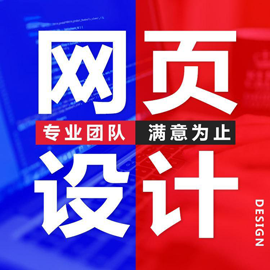Culture: Teams & Knowledge -- Chapter 2-3 of “Software Engineering at Google”
1.概述:

10多年的靈丘網(wǎng)站建設經(jīng)驗,針對設計、前端、開發(fā)、售后、文案、推廣等六對一服務,響應快,48小時及時工作處理。營銷型網(wǎng)站建設的優(yōu)勢是能夠根據(jù)用戶設備顯示端的尺寸不同,自動調整靈丘建站的顯示方式,使網(wǎng)站能夠適用不同顯示終端,在瀏覽器中調整網(wǎng)站的寬度,無論在任何一種瀏覽器上瀏覽網(wǎng)站,都能展現(xiàn)優(yōu)雅布局與設計,從而大程度地提升瀏覽體驗。創(chuàng)新互聯(lián)建站從事“靈丘網(wǎng)站設計”,“靈丘網(wǎng)站推廣”以來,每個客戶項目都認真落實執(zhí)行。
這本書的第二部分主要是 Google 的團隊文化的介紹,主要是團隊合作以及知識分享方面的方法和觀點。下面介紹我作為初學者的一些比較有感觸的點。在目前的學習生活以及網(wǎng)上沖浪中,經(jīng)常會問問題,以及有一些文檔方面的做法,不是很符合規(guī)范。
2. 團隊合作
2.1 Hiding considered Harmful
獨自完成項目,很少與他人溝通最大的危害是可能很晚發(fā)現(xiàn)問題,或者已經(jīng)有輪子了。這也和 DevOps 的概念相對應:
The current DevOps philosophy toward tech productivity is explicit about these sorts of goals: get feedback as early as possible, test as early as possible, and think about security and production environments as early as possible.
2.2 It's all about the Team
In a nutshell: Software engineering is a team endeavor.
Three pillars: Humility, Respect, Trust
Humility: Open to self-improvement;
Respect : Genuinely care about others you work with;
Trust : Believe others are competent and will do the right thing;
3. Knowledge Sharing
3.1 Questions
這一章給我的最大的收獲是:Asking Questions
If you take away only a single thing from this chapter, it is this: always be learning; always be asking questions.
在角落的附注里,有一個文檔,對我來說很受用:How to ask good questions (jvns.ca)
問問題之前,做一些研究,提事實性的問題方便他人回答,并且 "Nooglers" ramp up 的時間會達到六個月,ask for help when stuck;
3.2 Chesterson's fence: Before removing or changing something, first understand why it's here.
3.3 Code Readabilty
文章標題:Culture: Teams & Knowledge -- Chapter 2-3 of “Software Engineering at Google”
當前地址:http://www.yijiale78.com/article40/dschgho.html
成都網(wǎng)站建設公司_創(chuàng)新互聯(lián),為您提供營銷型網(wǎng)站建設、自適應網(wǎng)站、云服務器、網(wǎng)站導航、網(wǎng)站改版、企業(yè)網(wǎng)站制作
聲明:本網(wǎng)站發(fā)布的內容(圖片、視頻和文字)以用戶投稿、用戶轉載內容為主,如果涉及侵權請盡快告知,我們將會在第一時間刪除。文章觀點不代表本網(wǎng)站立場,如需處理請聯(lián)系客服。電話:028-86922220;郵箱:631063699@qq.com。內容未經(jīng)允許不得轉載,或轉載時需注明來源: 創(chuàng)新互聯(lián)

- 從SE0的角度談網(wǎng)站改版 2015-06-08
- 網(wǎng)站改版的費用是多少? 2018-09-25
- 網(wǎng)站改版SEO優(yōu)化需注意事項? 2022-08-12
- 企業(yè)網(wǎng)站建設網(wǎng)站改版必須要注意的幾個問題 2022-05-14
- 網(wǎng)站改版中我們需要注意的地方! 2014-11-13
- 企業(yè)網(wǎng)站改版的注意事項有哪些? 2023-04-10
- 網(wǎng)站改版的注意事項有哪些? 2016-09-14
- 那什么樣的網(wǎng)站需要改版呢?網(wǎng)站改版要多久? 2021-06-11
- 白云網(wǎng)站改版在優(yōu)化時要注意哪些問題 2021-01-01
- 如何規(guī)劃網(wǎng)站改版方案,注意事項是什么 2018-02-12
- 網(wǎng)站改版到底要改什么? 2016-09-18
- 網(wǎng)站改版需要注意哪些情況 2015-11-10